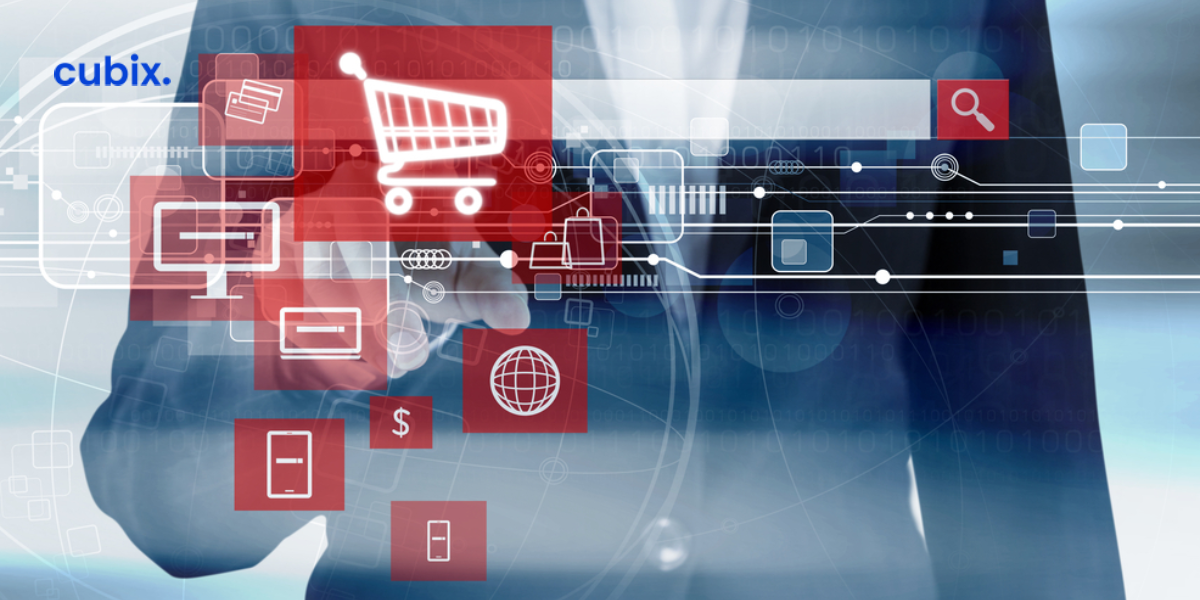The choice of platform for setting up your e-commerce store plays a major role in your store’s success. Shopify and Magento are two of the most commonly used platforms. Which of the two is the Best E-commerce Platform for Your Business?
You’ll have an answer by the end of this blog.
Grasping the Basics
Originating in Canada in 2006, Shopify was the brainchild of founders who wanted an online storefront for snowboarding gear. Faced with the limitations of existing eCommerce solutions, they devised their own platform, which evolved into what we know as Shopify today. Recognized for its straightforward nature, it comes equipped with functionalities such as web hosting and an approachable interface, making it a go-to for those less familiar with technology.
In contrast, Magento, launched in 2008 and subsequently bought by Adobe, prides itself on adaptability. It provides both an open-source variant and a premium model. Tailored for businesses with specialized demands, it requires users to manage their hosting. Magento stands out with an array of plugins and a dedicated developer base. Attributes like adaptability, growth potential, support for diverse shops, SEO tools, and multiple version choices are what set it apart. This platform is consistently refined by its community of developers.
Comparing Platforms on Various Criteria
Ease of Use
Designed with the user in mind, Shopify offers an intuitive interface that reduces the learning curve for beginners. Whether you're setting up a store for the first time or migrating from another platform, Shopify's guide and in-platform prompts make the journey easier. With an abundance of templates and themes, even non-tech-savvy users can launch a professional-looking store quickly.
Magento's appeal lies in its extensive customization capabilities. It's a preferred platform for businesses that have specific needs and a vision that demands customization beyond templates. However, to exploit its full potential, having skilled professionals proficient in coding on board is essential. If a business lacks such resources, outsourcing your project to a specialized e-commerce development company is a viable option.
Performance
Magento stands out when discussing performance scalability. With the right development expertise, businesses can optimize Magento to handle extreme traffic spikes during events like Black Friday or holiday sales. Moreover, with its open-source nature, businesses can choose their hosting solution to further optimize performance.
Shopify manages the hosting itself, ensuring consistent performance and uptime. It also benefits from regular updates, ensuring the platform remains secure and performs efficiently. The added advantage of built-in CDN services guarantees faster load times globally.
Marketing
Shopify’s ecosystem is enriched with apps that cater to every facet of marketing. From email marketing integrations like Mailchimp to SEO tools and analytics, the platform ensures businesses have the tools they need to grow. Its ability to integrate with Instagram and Facebook shops also offers a seamless social selling experience.
Magento's strength in marketing is rooted in its flexibility. Through its vast array of extensions, businesses can integrate advanced SEO tools, affiliate marketing platforms, and even automation tools. Its ability to support multi-currency and multilingual sites can give businesses an edge in global markets.
Pricing
Shopify presents a range of pricing structures, including a Lite option for social media sales and the more robust Shopify Plus, designed specifically for high-volume sellers and expansive enterprises. As businesses progress through these levels, they can unlock more features, ensuring the platform's adaptability to growing needs.
With Magento two primary editions are available – Magento Open Source (at no charge) and Magento Commerce (subscription-based). While you can access the open-source variant without any upfront fees, the expenses related to hosting, safeguarding data, add-ons, and potential customization can accumulate. Magento Commerce, targeting larger corporate entities, includes cloud hosting and an expanded feature set but comes with a heftier price tag.
Which is the Best E-commerce Platform for Your Business?
It depends on a range of factors like your business goals, the industry you operate in, and your operational procedures.
When Should You Choose Magento?
Some of the top global brands are using Magento and are happy doing so. But that shouldn’t make you blindly follow the giants. There are specific scenarios when using Magento is the optimal choice for a business which include:
If one or more of the above-mentioned scenarios are true for your business, then going for Magento might make perfect business sense.
When Should You Opt for Shopify?
If the criteria mentioned in the last section don't hold true for your business, then opting for Shopify might be the option. Here are situations in which Shopify is the ideal e-commerce solution:
Getting Started
Both platforms have their pros and cons. Which one is the best for you depends on your vision and your particular scenario. This blog gives you the information necessary to make the right platform choice for your e-commerce store.
If you decide to go custom, you will need a capable e-commerce development partner to set your e-commerce store up for success. Cubix has been developing market-leading business solutions for over a decade. The company’s clientele and portfolio speak for themselves.
If you don’t want to go through the hassle of evaluating dozens of different development partners consider joining hands with Cubix. Discuss your idea with us now!

